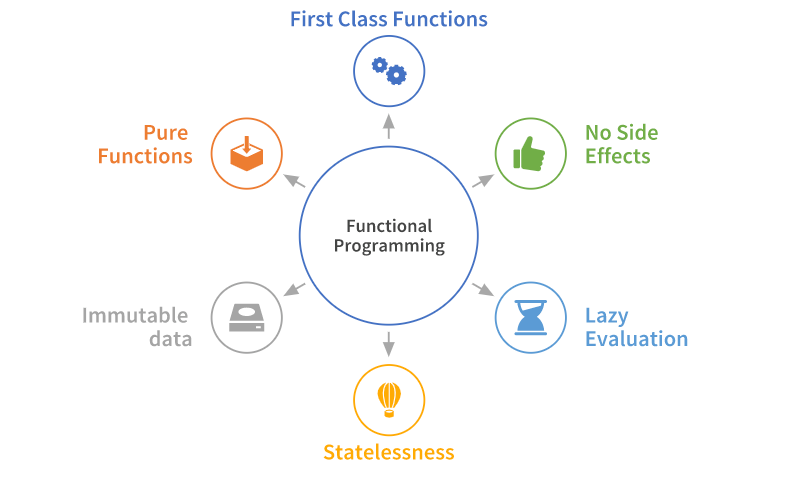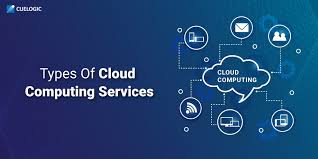Advanced Programming Concepts and Skills You Need to Know
Introduction:
In the ever-evolving world of technology, programming has become an essential skill that is in high demand. As a programmer, you need to keep up with the latest advancements and trends in the industry to stay competitive. In this blog, we'll cover some advanced programming concepts and skills that will help you take your coding skills to the next level.
Object-Oriented Programming (OOP)
Object-oriented programming is a programming paradigm that allows you to create reusable and modular code. In OOP, you define classes that encapsulate data and functions, making it easy to create complex applications. We'll cover the key concepts of OOP, such as inheritance, encapsulation, and polymorphism, and explain how they can be used to write more efficient and maintainable code.
Data Structures and Algorithms
Data structures and algorithms are the building blocks of any program. Knowing how to use them effectively can help you write code that is faster and more efficient. We'll cover some essential data structures, such as arrays, linked lists, and trees, and explain how to implement common algorithms, such as sorting and searching.
Testing and Debugging
No matter how skilled a programmer you are, bugs are inevitable. Knowing how to test and debug your code is essential for creating high-quality applications. We'll cover some common testing frameworks, such as JUnit and Selenium, and show you how to use debugging tools to track down and fix bugs.
Functional Programming
Functional programming is a programming paradigm that emphasizes immutability and the use of functions. It is becoming increasingly popular, especially in the world of big data and machine learning. We'll explain the key concepts of functional programmings, such as higher-order functions and lambda expressions, and show you how to write code using functional programming principles.
Concurrency and Parallelism
Concurrency and parallelism are critical concepts in modern programming, especially for applications that process large amounts of data. Understanding how to use concurrency and parallelism can help you write code that is faster and more efficient. We'll explain the differences between concurrency and parallelism and show you how to use threads, processes, and other concurrency models in your code.
Memory Management
Memory management is an essential concept in programming, particularly for languages like C and C++. Understanding how memory is allocated and deallocated can help you write code that is efficient and avoids memory leaks. We'll explain how memory is managed in different programming languages and show you how to use tools like valgrind to detect memory errors.
Networking and Security
Networking and security are critical concepts in modern programming, especially for web applications. Understanding how networking protocols work and how to secure your code against attacks is essential for creating safe and secure applications. We'll cover some of the most common networking protocols, such as TCP/IP and HTTP, and show you how to use encryption and other security measures to protect your code.
Database Management
Databases are essential for storing and retrieving data in modern applications. Understanding how to design and use databases can help you create efficient and scalable applications. We'll cover some of the most common types of databases, such as SQL and NoSQL, and explain how to design and implement database schemas and queries.
DevOps and Continuous Integration/Continuous Delivery (CI/CD)
DevOps and CI/CD are critical concepts in modern software development. Understanding how to automate the development, testing, and deployment process can help you create software that is reliable, scalable, and efficient. We'll cover some of the most common tools and techniques used in DevOps and CI/CD, such as Docker, Kubernetes, and Jenkins, and show you how to use them to streamline your development workflow.
Machine Learning and Artificial Intelligence
Machine learning and artificial intelligence are rapidly growing fields that are changing the way we interact with technology. Understanding the fundamentals of machine learning can help you create intelligent applications that can learn and adapt to user behavior. We'll cover some of the most common machine learning algorithms, such as linear regression, decision trees, and neural networks, and show you how to implement them using popular frameworks like TensorFlow and Keras.
Cloud Computing
Cloud computing has revolutionized the way we build and deploy applications. Understanding how to use cloud services like Amazon Web Services, Microsoft Azure, and Google Cloud Platform can help you create scalable and efficient applications. We'll cover some of the most common cloud services, such as virtual machines, containers, and serverless computing, and show you how to use them to build and deploy your applications in the cloud.
Web Development Frameworks
Web development frameworks are essential for creating complex web applications quickly and efficiently. Understanding how to use frameworks like React, Angular, and Vue.js can help you create dynamic and interactive user interfaces. We'll cover some of the most popular web development frameworks, and show you how to use them to create web applications that are fast, efficient, and easy to maintain.
Mobile Development
Mobile development is a rapidly growing field that requires specialized skills and knowledge. Understanding how to develop mobile applications for iOS and Android devices can help you create applications that can reach millions of users. We'll cover some of the most popular mobile development frameworks, such as React Native and Flutter, and show you how to use them to create cross-platform mobile applications.
Soft Skills
Soft skills are essential for any programmer, no matter how advanced their technical skills are. Skills like communication, teamwork, and time management can help you work more effectively with colleagues and clients, and improve your overall productivity. We'll cover some of the most important soft skills for programmers, and show you how to develop them through practice and feedback.
Design Patterns
Design patterns are reusable solutions to common software design problems. Understanding how to use design patterns can help you write code that is more maintainable, extensible, and reusable. We'll cover some of the most common design patterns, such as the Singleton, Factory, and Observer patterns, and show you how to use them in your code.
Performance Optimization
Performance optimization is essential for creating fast and efficient applications. Understanding how to profile and optimize your code can help you identify and eliminate performance bottlenecks. We'll cover some of the most common performance optimization techniques, such as caching, lazy loading, and multithreading, and show you how to use them to improve the performance of your applications.
Code Refactoring
Code refactoring is the process of restructuring existing code without changing its behavior. Refactoring can help you improve the readability, maintainability, and scalability of your code. We'll cover some of the most common code smells, such as duplicated code and long methods, and show you how to refactor your code to eliminate these smells.
Debugging and Troubleshooting
Debugging and troubleshooting are essential skills for any programmer. Understanding how to use debugging tools and techniques can help you identify and fix bugs in your code quickly and efficiently. We'll cover some of the most common debugging techniques, such as breakpoints and logging, and show you how to use them to debug your code.
Version Control
Version control is essential for managing changes to your code and collaborating with other developers. Understanding how to use version control systems like Git can help you keep track of changes to your code, revert changes, and collaborate with other developers more effectively. We'll cover some of the most common version control techniques, such as branching and merging, and show you how to use them to manage your code effectively.
Conclusion:
Mastering these advanced programming concepts and skills can help you become a better programmer and create high-quality applications that meet the demands of today's rapidly changing technological landscape. By continuously learning and practicing these skills, you can stay ahead of the curve and create software that is fast, efficient, and reliable. So, keep exploring these concepts and skills, and see how they can help you become an advanced programmer.






Comments
Post a Comment